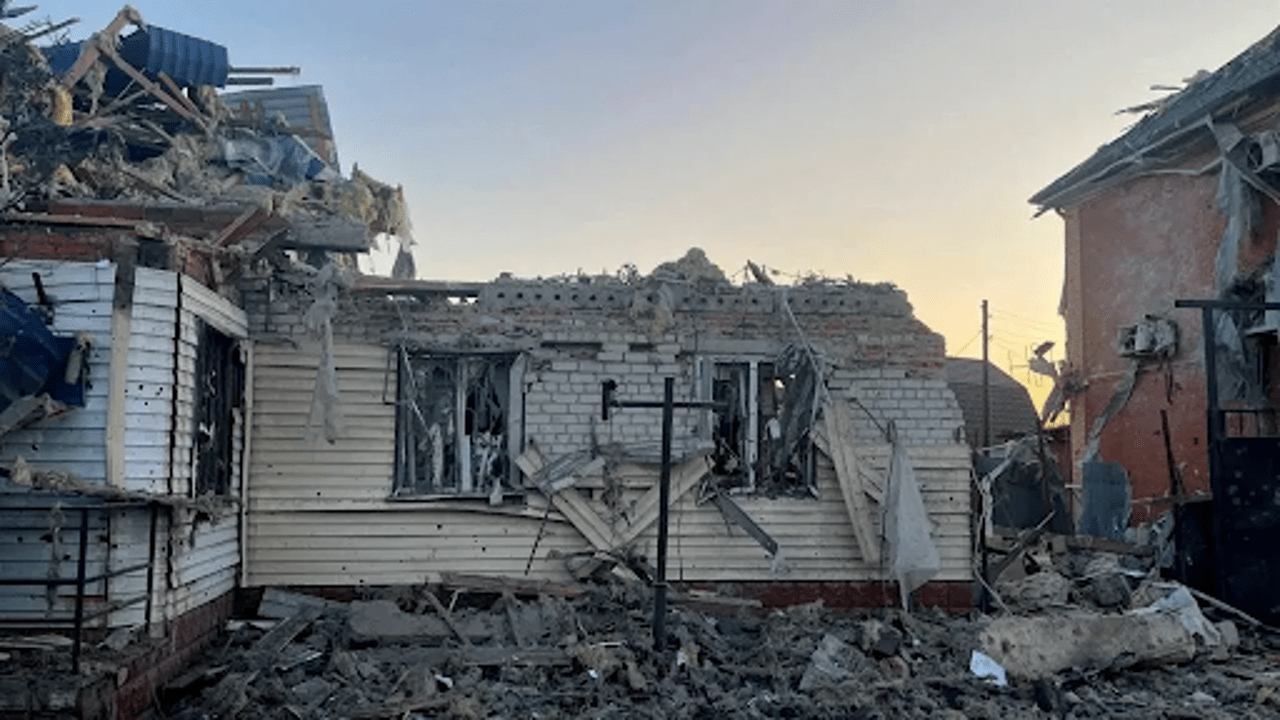
A house damaged after Russian officials claimed a Ukrainian military attack on the town of Sudzha. Reuters
A state of emergency has been declared in Russia's Kursk region following an unusual cross-border attack by Ukrainian forces. The assault, which began early on Wednesday, has led to significant disruptions and casualties, prompting regional officials to act swiftly.
Acting Governor Alexei Smirnov announced the emergency measures, explaining they were essential to manage the fallout from the incursion. According to Russian officials, at least five civilians have been killed and 31 injured, including six children, since the attack began. The extent of the incursion remains unclear, and Ukraine has not yet provided an official comment.
The situation unfolded on Tuesday when approximately 1,000 Ukrainian troops, supported by 11 tanks and over 20 armored vehicles, crossed into Russia near the town of Sudzha. Fighting erupted in several nearby villages throughout the day, leading local authorities to restrict movement and cancel public events. Air alerts were issued, and footage verified by the BBC showed low-flying jets and smoke rising from affected areas. Thousands of residents have been evacuated, and medical personnel from other cities have been called in to assist.
The incursion into Russian territory is particularly rare, as Ukrainian military operations have largely been contained within Ukraine since Russia's full-scale invasion began in February 2022. Ukrainian MP Oleksiy Honcharenko later confirmed that Ukrainian forces had taken control of the Sudzha gas hub, a key facility for the transit of natural gas from Russia to the EU. This strategic point is the only entry for Russian gas into the European market. While this claim has not been independently verified, it represents a significant escalation in the conflict.
Honcharenko suggested that the raid was intended to demonstrate Ukraine's capability to challenge Russian forces and send a message to Europe and the US. He emphasized that the incursion aims to shift military momentum and reduce Russian attacks on eastern Ukraine. He also noted that despite the international recognition of Russian territory, Russia has not resorted to extreme measures like nuclear threats in response.
Russian President Vladimir Putin has condemned the attack as a "major provocation," accusing Ukraine of indiscriminately targeting civilian areas. Russia's Chief of General Staff, Valery Gerasimov, reported that Russian forces have halted the Ukrainian advance and are actively engaging the attackers near the border. Gerasimov claimed that Russian forces have inflicted significant casualties on the Ukrainian troops.
In response, pro-war Telegram channels have painted a more chaotic picture, with reports of ongoing heavy fighting and deteriorating conditions in Sudzha. The Russian National Guard has increased security around the Kursk nuclear power plant, located about 70 kilometers northeast of Sudzha, while missile attack warnings have been issued in the neighboring Belgorod region.
In Ukraine, Sumy region head Volodymyr Artyukh has ordered evacuations from areas bordering Kursk, while Ukrainian Colonel Vladislav Seleznyov described the attack as "preventative," citing concerns over a large Russian troop presence near the border. This cross-border raid follows previous Ukrainian incursions and skirmishes involving anti-Kremlin Russian groups, though such large-scale operations remain rare.
As the situation continues to evolve, military analysts and officials are assessing the implications of this aggressive move, questioning its impact on the broader conflict and the strategic calculations of both sides.















